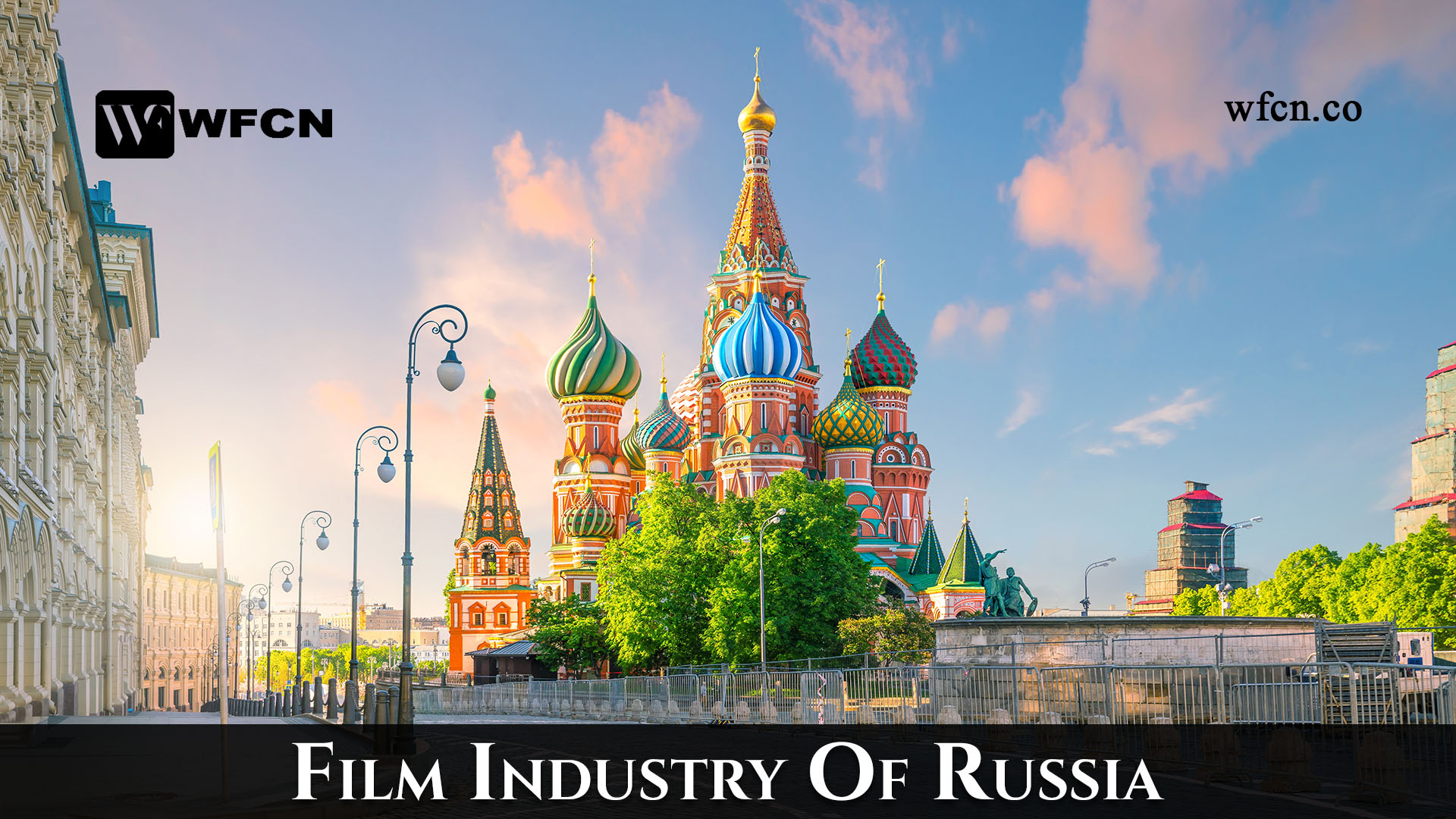Film Industry of Russia
Russian Cinema has a rich and diverse history that spans over a century, marked by various artistic movements, political influences and cultural shifts. The evolution of Russian Cinema reflects the turbulent and dynamic nature of the country itself. From its early days in the late 19th century to the present, Russian Cinema has produced Iconic Films and Influential Filmmakers contributing significantly to the Global Cinematic Landscape.
The birth of Russian Film can be traced back to the Lumière Brothers' first public screening of Films in Paris in 1895. Shortly after in 1896, the Lumière Cinematograph reached Russia, captivating audiences with the magic of Moving Images. The pioneering efforts of Russian Filmmakers like Aleksandr Drankov and Aleksandr Khanzhonkov soon followed, leading to the creation of the first Russian Narrative Film, "Stenka Razin" (1908), directed by Vladimir Romashkov.
The early years of Russian Cinema were marked by experimentation and adaptation of Western Filmmakingtechniques. However, the Film Industry underwent a significant transformation during the Soviet era, particularly after the 1917 Russian Revolution. The Bolshevik government recognized the Power of Cinema as a tool for propaganda and education leading to the establishment of state-controlled Film Production and Film Distribution.
Early Years:
Pioneering Days:
The First Russian Film is often considered to be "Stenka Razin" (1908) directed by Vladimir Romashkov. Early Russian Cinema was heavily influenced by the works of the Lumière Brothers and Georges Méliès.
Soviet Era:
Bolshevik Revolution:
The Russian Revolution of 1917 had a profound impact on the Russian Cinema. The Bolsheviks saw Film as a powerful tool for propaganda and education. One of the most influential Film Maker of this period was Sergei Eisenstein known for his groundbreaking work in Film Theory and Film Direction. His Films, such as "Battleship Potemkin" (1925) and "Alexander Nevsky" (1938) are celebrated for their innovative use of Montage and their powerful political messages. The Soviet era also saw the emergence of other notable Film Directors like Dziga Vertov, whose documentary "Man with a Movie Camera" (1929) is considered a masterpiece of early Avant-garde Cinema.
Soviet filmmakers, such as Sergei Eisenstein developed the concept of Montage, emphasizing the Juxtaposition of Shots to create meaning. Eisenstein's "Battleship Potemkin" (1925) is a classic example.
Socialist Realism became the dominant style promoting the portrayal of Soviet life in a positive light. This influenced not only Film but also literature, visual arts and other cultural expressions. The political climate in the Soviet Union heavily influenced the themes and content of Russian Films. Socialist realism became the dominant artistic style, emphasizing the glorification of the Soviet state and its achievements. However, some Filmmakers such as Andrei Tarkovsky managed to navigate the restrictions and create deeply philosophical and introspective works like "Solaris" (1972) and "Stalker" (1979).
Post-Soviet Era:
Collapse of the Soviet Union:
The dissolution of the Soviet Union in 1991 brought significant changes to Russian Movies. Filmmakers were no longer bound by strict ideological constraints. The collapse of the Soviet Union in 1991 brought about significant changes to the Russian Film Industry. Filmmakers faced new challenges in adapting to a market-driven economy and there was a diversification of themes and styles. Film Directors like Andrei Zvyagintsev gained International Acclaim for Films like "The Return" (2003) and "Leviathan" (2014) which explored complex social and moral issues.
New Wave:
A new generation of Filmmakers emerged, exploring diverse themes and styles. Film Directors like Andrei Zvyagintsev gained international acclaim for Films like "The Return" (2003) and "Leviathan" (2014).
Russian Film today covers a wide range of genres including historical epics, dramas, comedies and Art-house Films. There's a mix of big-budget productions and Independent Films. Contemporary Russian Movies continue to evolve with a mix of commercial blockbusters movies, Independent Films and a growing presence on the International Film Festival Circuit. Film Directors like Kantemir Balagovand Kirill Serebrennikov are gaining recognition for their distinctive voices, pushing the boundaries of Storytelling and Visual Aesthetics.
Russian Films are regularly featured in International Film Festivals. The Moscow International Film Festival is one of the oldest in the world and Russian Films often participate in Film Festivals like Cannes, Venice and Berlin.
Challenges:
The film industry faces challenges including funding issues, censorship concerns, and the need to balance commercial success with artistic expression. Coming out of Covid, Russia saw a stronger recovery than any other European Film Market in 2021. Russia recorded 159.3 million admissions last year, representing a rise of 63% on 2020 the first year of the pandemic. This put the Russian Federation significantly ahead of France, the second-best performing European Film Market, owing to the earlier reopening of Cinemas and notable local blockbusters.
Film Directors such as Andrey Zvyagintsev, Andrei Konchalovsky and Alexander Sokurov have continued the legacy of Russian Cinema by creating thought-provoking and Visually Striking Films.
Soviet Union was known for its strong tradition of Animated Films, including the works of directors like Yuriy Norshteyn ("Hedgehog in the Fog") and Ivan Ivanov-Vano.
Russian Animation Films continues to thrive with Studios producing both traditional and Computer-animated Films.
Conclusion:
The history of Russian Cinema is a captivating journey through political upheavals, artistic revolutions and the resilience of Filmmakers. From the early pioneers who experimented with the possibilities of the medium to the contemporary Film Directors shaping the future of Russian Films, the industry remains a vital and dynamic force in Global Film Culture. Cinema of Russia has a rich history that dates back to the late 19th century. Russian filmmakers and their works have made significant contributions to World cinema.





